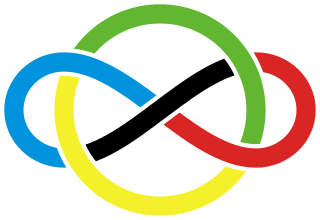
The International Mathematical Olympiad (IMO) is a mathematical olympiad for pre-university students, and is the oldest of the International Science Olympiads. It is “the most prestigious” mathematical competition in the world. The first IMO was held in Romania in 1959. It has since been held annually, except in 1980. More than 100 countries participate. Each country sends a team of up to six students, plus one team leader, one deputy leader, and observers.
The International Physics Olympiad (IPhO) is an annual physics competition for high school students. It is one of the International Science Olympiads. The first IPhO was held in Warsaw, Poland in 1967.
The United States National Chemistry Olympiad is a contest held by the American Chemical Society (ACS) used to select the four-student team that represents the United States at the International Chemistry Olympiad (IChO).

The International Institute of Information Technology Hyderabad (IIITH) is a premier research Deemed University, founded as a non-profit public-private partnership (N-PPP), located in Hyderabad, India. It is the first IIIT in India under this model.
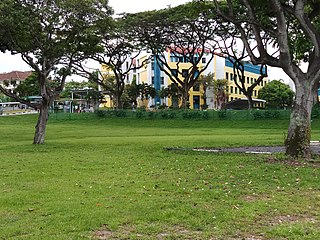
Crescent Girls' School (CGS) is a government autonomous girls' school along Tanglin Road, Singapore. Founded in 1956, it is one of the schools under the Worldwide Microsoft Innovative Schools Programme.
The Worldwide Online Olympiad Training (WOOT) program was established in 2005 by Art of Problem Solving, with sponsorship from Google and quantitative hedge fund giant D. E. Shaw & Co., in order to meet the needs of the world's top high school math students. Sponsorship allowed free enrollment for students of the Mathematical Olympiad Program (MOP). D.E. Shaw continued to sponsor enrollment of those students for the 2006-2007 year of WOOT.

The International Linguistics Olympiad (IOL) is one of the International Science Olympiads for secondary school students. Its abbreviation IOL is deliberately chosen not to correspond to the name of the organization in any particular language, and member organizations are free to choose for themselves how to designate the competition in their own language. This olympiad furthers the fields of mathematical, theoretical, and descriptive linguistics.
This article describes the selection process, by country, for entrance into the International Mathematical Olympiad.
The International Philosophy Olympiad (IPO) is an annual philosophy competition for high school students from around the world, one of the International Science Olympiads. It is organized under the auspices of the International Federation of Philosophical Societies (FISP) and supported by UNESCO.
The European Union Science Olympiad (EUSO), named European Olympiad of Experimental Science (EOES) since 2021, is a team-based science competition for the European Union's (EU) students to display their capabilities in natural sciences. The annual EUSO was founded in 2003 by Dr. Michael A. Cotter of Dublin, Ireland. It includes only EU member countries. The competition is open to second-level-school, or secondary school, science students who are 18 years of age or younger prior to the competition. Each participating country sends two three-student teams who compete in two intellectually challenging and collaborative tasks. The tasks are designed to connect the branches of science, provide relevant and inquiry-based challenges, engage all team members, support self-pacing, prompt higher-order and creative thinking, and encourage substantive communication.

The International Junior Science Olympiad (IJSO) is an annual science competition for students aged 15 and under. It is one of International Science Olympiads and an international academical competition that covers physics, chemistry and biology at the same time. The first IJSO was held in Jakarta, Indonesia in 2004. Around 70 countries send delegations of three to six students, plus one to three team leaders, and observers.
The North American Computational Linguistics Open competition (NACLO), formerly called the North American Computational Linguistics Olympiad before January 1, 2020, is a computational linguistics competition for high school students in the United States and Canada that has been held since 2007. For the 2021 Open competition, approximately 1300 to 1400 students competed. Since 2008 the contest has consisted of two rounds, the second being administered to the top scorers in the first round. The top-scoring students on the second round qualify for the International Linguistics Olympiad (IOL), one of the international science olympiads.
The Asian Physics Olympiad (APhO) is an annual physics competition for high school students from Asia and Oceania regions. It is one of the International Science Olympiads. It was initiated in the year of 2000 by Indonesia. The first APhO was hosted by Indonesia in 2000.
Korean Chemical Society was founded on July 7, 1946. It is a non-profit corporation that aims a contribution toward a chemical scholarship, technological development, education, education, and the spread of chemical knowledge. There are about 7,000 members active around university, laboratories, industry, and schools, and there are about 140 organization and about 30 special member companies participating in KCS.
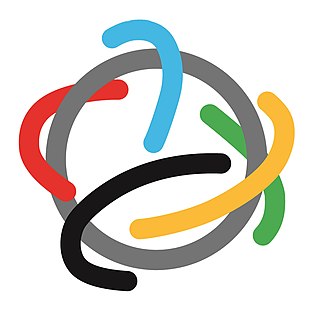
The International Geography Olympiad (iGeo) is an annual competition for 16- to 19-year-old geography students from all over the world. Students chosen to represent their countries are some of the best, chosen from thousands of students who participate enthusiastically in their own National Geography Olympiads. iGeo tests the abilities of every participant in spatial patterns and processes. The iGeo consists of three parts: a written test, a multimedia test and a substantial fieldwork exercise requiring observation, leading to cartographic representation and geographical analysis. The programme also includes poster presentations by teams, cultural exchanges, and time for students to know their fellow students and explore the host city.

National Science Talent Contest or NSTC is an extension of the National Physics Talent Contest launched by PIEAS in 1995 on the directive of the then President of Pakistan. The purpose of the NSTC is to inspire the youth of the Nation to opt for careers in science, and mathematics and to prepare young students for participation in International Science Olympiads in Physics, Biology, Chemistry and Mathematics.
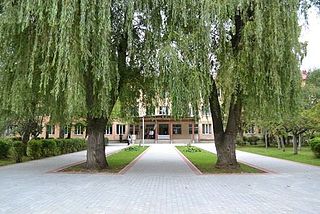
The Lviv Physics and Mathematics Lyceum is a public boarding high school in Lviv, Ukraine. It is considered to be one of the best educational institutions in the country. In 2012 and 2015, the Lviv Physics and Mathematics Lyceum was ranked first among high schools in Ukraine by Focus magazine. The school is well known for organizing multiple country-wide competitions in mathematics, physics ("Levenia"), programming ("Bober"), and the Ukrainian version of the international Mathematical Kangaroo contest.

Moscow State University, Tashkent, or Branch of Moscow State University Named for M.V. Lomonosov in Tashkent, was established in 2006 by the government of Uzbekistan as a branch of Moscow State University. The university primarily focuses on two areas: psychology and computer science. The campus is at 22 Amir Temur Prospect.
Andrew L. GoodwinFRS is a university research professor and professor of materials chemistry at the University of Oxford.
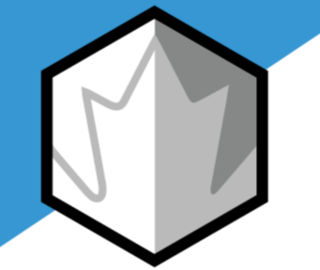
The Junior Science Olympiad of Canada or JSOC is an examination in science for secondary school students, with one test usually conducted in June and a second test in October. Organized by Jennifer Pitt-Lainsbury, Marisca Vanderkamp, Maria Niño-Soto, and Andrew Moffat in association with the University of Toronto Schools (UTS), JSOC encompasses material of the grade 12 curriculum for the three sciences.











